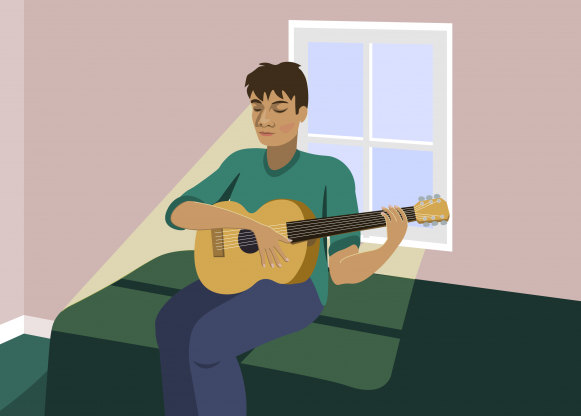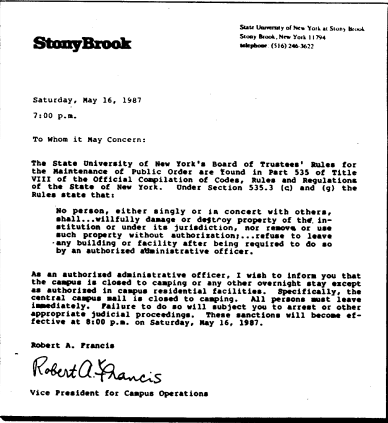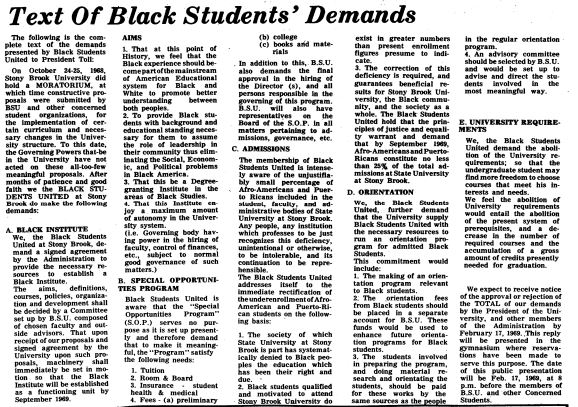
Steven Keehner, assistant opinions editor, is a junior journalism major with a minor in history.
When the term “autonomy” is used, it typically comes within the lens of self-governance, such as Palestinians in Israel or Catalonians in Spain. The first definition from Merriam-Webster fits this idea: “the quality or state of being, self-governing especially.”
However, I’d like to look at it from the less talked about perspective — the autonomy of the individual. Conveniently, the second definition on Merriam-Webster explains this: “self-directing freedom and especially moral independence.”
As we pass the one-year anniversary of COVID-19 America, it’d be impossible to deny the plethora of lessons I’ve learned. But none other will continue to help me more than the discovery of my self-autonomy.
You may ask, “Steven, what the hell are you talking about?” First, let me say that I get the confusion. Now, allow me to explain what I mean. When I’m not ripping on politicians, I like to discuss the opposite of socio-political issues: one’s inner being.
From mental health, love, and chilling the hell out, I’ve been embracing self-care throughout the year. But what’s the point of self-care if one can’t enact upon their wish to change?
To push these changes forward, one needs to not only realize their own abilities, but to use that realization in a manner that is beneficial.
It’s very easy to sit down and think about why you suck. I do it so often, I’ve considered listing it as a skill on my resume. It’s easy for anyone to point out their own glaring flaws. When we do this, in a twisted way, it is the first step towards solving said problem.
Here’s a real-life example: For as long as I’ve been in school, I’ve sucked at every non-English language I’ve ever taken.
So when I realized I was going to have to study a foreign language this semester, I was concerned. From that concern, came the self-doubts and blanket statements about myself and how this was going to be a total disaster. But then I tried to think: Instead of curling up in a ball and letting Spanish kick mi culo, what could I proactively do to avoid ending up in that trap?
Well, for starters, actually doing the homework would be smart. Asking questions when I first get confused, rather than waiting until it’s too late, would help too. Get where I’m heading now?
Now, here’s the part that we need to pay attention to. I can easily write a list of everything I want to do for anything, but there needs to be a bridge built between the thoughts of what I would like to do and what I will do. The how is the key to making this entire process work.
I know doing my homework will make life easier. So, if I dedicate a window of time after each class, where no matter what, that’ll be my dedicated Spanish homework time, then I’m connecting my goal to my commitment.
This is a minor example in the grand scheme of my point, but the idea is still valid: When we realize that we’re capable of creating positive change for ourselves, it doesn’t just make our lives easier. It makes us happier.
That easiness and happiness is such a large part of what we’ve lost from the pandemic. The fatigue that many are experiencing is a genuine concern — it’s also another reason to realize that in times where we can’t control a lot, we need to be aware of what we have control over.
Life in quarantine sucks, I’m not here to argue otherwise. I’m stuck in my house with my family all day. But what can I do to make it better? How can I replicate that feeling of independence in a comfortable space when it just isn’t possible at the moment?
Those moments of isolation, at least for myself, are vital in my day-to-day life. As a self-identified social introvert, I can only tolerate other people for so long before I need time away from everyone. As mean as it sounds, I include my family in that previous statement.
It’s not a matter of love for my friends or family, it’s about taking care of myself. And if that means creating the space to do my thing, so be it.
Sure, I can’t magically make everyone in my home disappear for enough time to let me make myself dinner, watch a few episodes of “Impractical Jokers” in my living room, and maybe even have enough time for a cup of coffee afterward.
But I can buy noise-canceling headphones and try to read a good book, take some time out of every week to distract myself with my guitar, or just take a ride by myself to grab Halal food while screaming along to my favorite emo and pop-punk songs.
And what’s stopping me? Nothing. I have the power to better my situation and nobody can take that from me. And what’s stopping you? Nothing! You have the power to better your situation and you better damn believe that nobody can take that from you, either.
There’s a lot that we can’t control. But on the other side of life’s coin, we can direct much of our own play, too.
Once one realizes their self-autonomy, it can be the first step towards building a bigger, better intrapersonal relationship. And in times where we don’t have what we’re used to, that counts for a lot.























